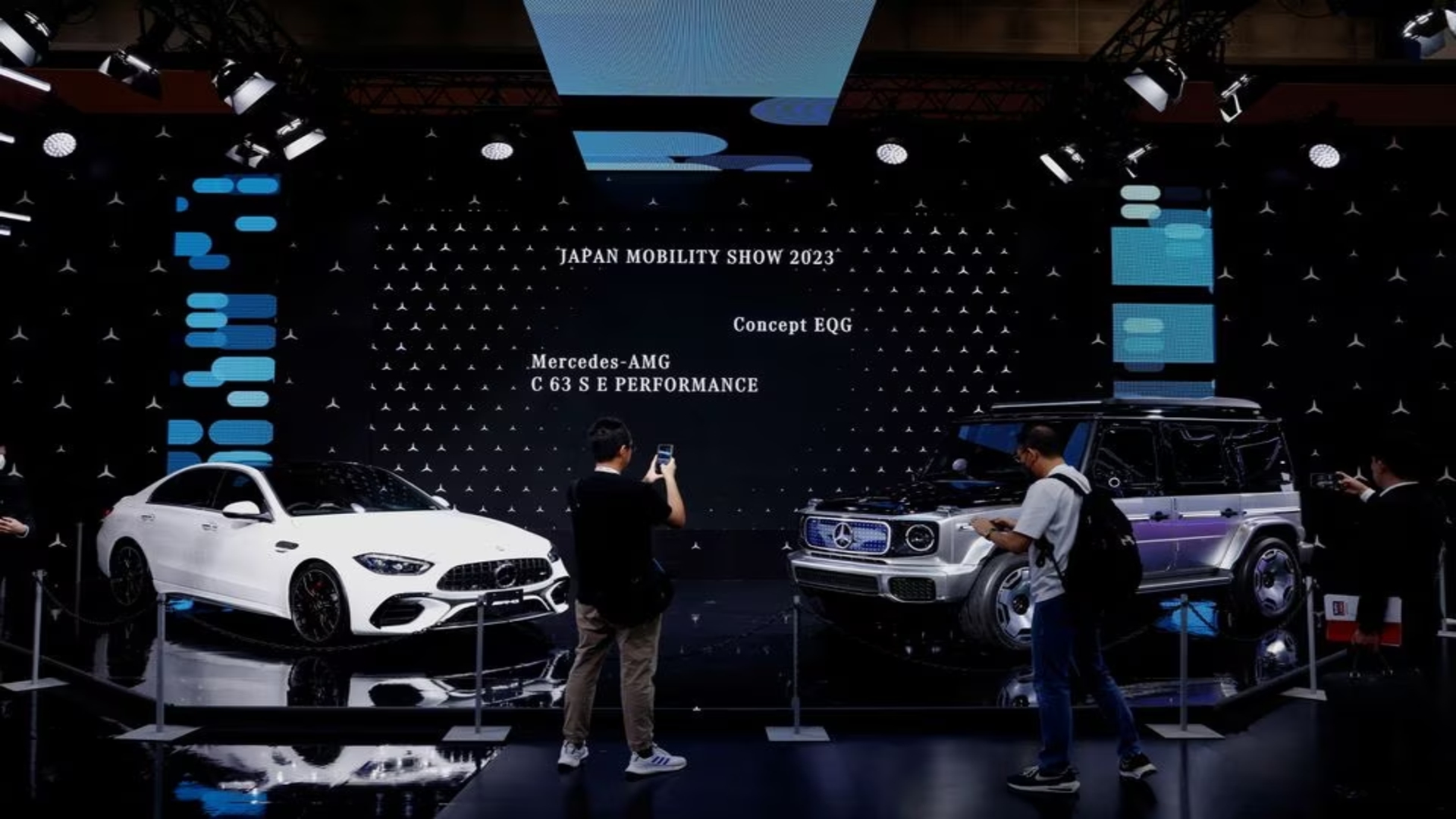Summary
- BEV market status quo “not sustainable” – CFO
- Operating profit down 6.8% to 4.8 bln euros in Q3
- Pricing competition, supply chain snags weigh on earnings
- Adjusted returns for cars expected at lower end of forecast
BERLIN, Oct 26 (Reuters) – Mercedes-Benz (MBGn.DE) said a “brutal” electric vehicle market of heavy price cuts and supply chain issues meant it would likely hit the lower end of its 12-14% adjusted return on sales forecast for the cars division, as third-quarter earnings fell.
The luxury carmaker said it remained committed to its EV targets, but could bolster earnings with better returns from its combustion engine portfolio if margins on EVs remained lower than previously assumed, its chief financial officer said on an analyst call.
With some traditional players selling battery electric vehicles below the level of internal combustion engine cars despite their higher production costs, “this is a pretty brutal space,” Harald Wilhelm said.
“I can hardly imagine the current status quo is fully sustainable for everybody,” he said.
Discounts offered on some models in Germany in the fourth quarter did not represent an overall shift in the carmaker’s pricing strategy of keeping prices high to focus on boosting margins over volume, Wilhelm said.
Mercedes shares had slid more than 6% by 0733 GMT to their lowest in almost a year, and were the biggest fallers on the euro zone blue-chip index (.STOXXE50). BMW was down 4% and VW more than 2%.
Carmakers from Ford (F.N) to Tesla (TSLA.O) have been slashing prices throughout the year in markets from the United States to China to stoke demand, but Mercedes-Benz has broadly resisted following suit.
The company on Thursday reported a 12.4% adjusted return on sales in its cars division in the third quarter.
Earnings before interest and taxes (EBIT) across the group fell 6.8% to 4.8 billion euros ($5.1 billion), slightly above consensus, as its earnings from vans jumped 44% to 715 million euros with an adjusted return on sales of 15%.
Group revenue was down 1.4% at 37.2 billion euros.
Mercedes-Benz described the market environment as “subdued”, but Wilhelm said “we are beyond the worst” when it comes to inflation and energy pricing.
But higher inflation, a 329-million-euro headwind from foreign exchange and supply chain-related costs dampened third-quarter earnings, the company said, echoing Porsche, which warned in its Q3 results on Tuesday that the luxury sector was not immune to macroeconomic woes.
Mercedes-Benz earlier this month reported a 4% drop in overall third-quarter sales, with top-end sales down 11%, partly caused by model changeovers and a shortage in 48-volt systems supplied by Bosch.
Car revenue dipped 3.8% due to the fall in deliveries, but the average selling price remained stable, the company said.
Looking ahead, it expects the rate of sales from the first three quarters to remain at around the same pace in the fourth quarter, and did not adjust its full-year sales target of no year-on-year change.
($1 = 0.9485 euros)
Reporting by Victoria Waldersee; Editing by Rachel More, Jacqueline Wong and Jan Harvey











